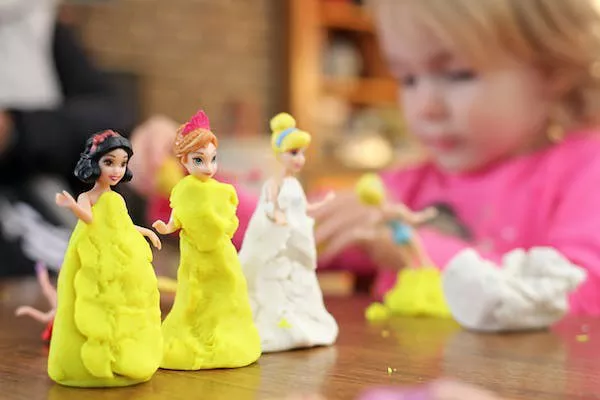In the journey of parenthood, one of the crucial aspects is managing your little one’s hygiene, and a significant part of that involves understanding and optimizing diaper usage. As your baby transitions into the 8-month mark, you may find yourself wondering, “How many diapers a day is ideal for my 8-month-old?” In this comprehensive guide, we delve into the world of diapering for your growing infant, providing insights, tips, and recommendations to ensure both comfort and hygiene.
1. Understanding Diapering Needs at 8 Months:
At 8 months, your baby is likely to be more active, exploring the world around them. This newfound mobility can influence their diapering needs. On average, an 8-month-old may require around 5 to 8 diaper changes per day. However, it’s important to note that each baby is unique, and factors such as diet, metabolism, and fluid intake can impact the frequency of diaper changes.
Dietary Influences: The introduction of solids into your baby’s diet can lead to changes in bowel movements, potentially affecting the frequency of diaper changes. Monitor your baby’s feeding patterns and adjust the diapering routine accordingly.
Fluid Intake: Adequate hydration is crucial for your baby’s well-being. Increased fluid intake may result in more frequent urination, necessitating additional diaper changes. Be mindful of your baby’s hydration levels to better gauge their diapering requirements.
2. Tips for Efficient Diapering:
Streamlining your diapering routine not only ensures your baby stays clean and comfortable but also helps in optimizing diaper usage. Consider the following tips to enhance efficiency:
Organized Changing Stations: Set up well-equipped changing stations in key areas of your home to minimize the time spent searching for diapering essentials. This can make the process quicker and more convenient.
Choose the Right Diaper Size: Ensure your baby is wearing the appropriate diaper size. Ill-fitting diapers may lead to leaks, discomfort, and an increased need for changes. Regularly assess your baby’s size to make necessary adjustments.
3. Diapering and Sleep Patterns:
Balancing your baby’s diapering needs with their sleep schedule is crucial for both your little one’s rest and your peace of mind. Understanding the correlation between diaper changes and sleep can contribute to a smoother routine.
Nighttime Diapering: Consider using specially designed nighttime diapers to provide extended protection, reducing the need for overnight changes. This can contribute to uninterrupted sleep for your baby and, consequently, for you as well.
Diaper Changes Before Sleep: Incorporate a diaper change into your baby’s bedtime routine. Changing your baby into a fresh diaper before sleep can contribute to a more comfortable night’s rest.
4. Signs of Diaper Readiness:
Recognizing the cues indicating your baby’s need for a diaper change is an essential skill for parents. Understanding these signs can help prevent discomfort and reduce unnecessary changes.
Facial Expressions and Sounds: Pay attention to your baby’s facial expressions and sounds. Crying, fussiness, or discomfort may be indicators that it’s time for a diaper change.
Regular Checks: Implement a routine of checking your baby’s diaper at regular intervals, especially after feeding. This proactive approach can help you stay ahead of your baby’s diapering needs.
5. Eco-Friendly Diapering Choices:
With environmental consciousness on the rise, many parents are opting for eco-friendly diapering options. These choices not only contribute to a healthier planet but also provide a sustainable approach to diaper usage.
Biodegradable Diapers: Explore the availability of biodegradable or compostable diaper options. These diapers are designed to break down more efficiently, minimizing their environmental impact.
Cloth Diapers: Consider incorporating cloth diapers into your routine. Modern cloth diapers are designed for convenience, offering reusable and washable alternatives that can be both cost-effective and eco-friendly.
6. Consulting with Pediatric Professionals:
When in doubt about your baby’s diapering needs or if you notice any unusual patterns, consulting with pediatric professionals is paramount. Regular check-ups and open communication with your child’s healthcare provider can offer personalized guidance.
Health Concerns: Certain health conditions or dietary changes may influence your baby’s diapering requirements. Discuss any concerns or observations with your pediatrician to ensure your baby’s well-being.
Developmental Milestones: As your baby grows, their developmental milestones may impact diapering. Address any questions or uncertainties about your baby’s development with your healthcare provider for comprehensive support.
In conclusion, optimizing diaper usage for your 8-month-old involves a combination of understanding their individual needs, implementing efficient diapering practices, and considering eco-friendly options. By staying attuned to your baby’s cues, embracing practical tips, and seeking professional advice when needed, you can navigate the world of diapering with confidence and ensure a happy, healthy experience for both you and your little one.


